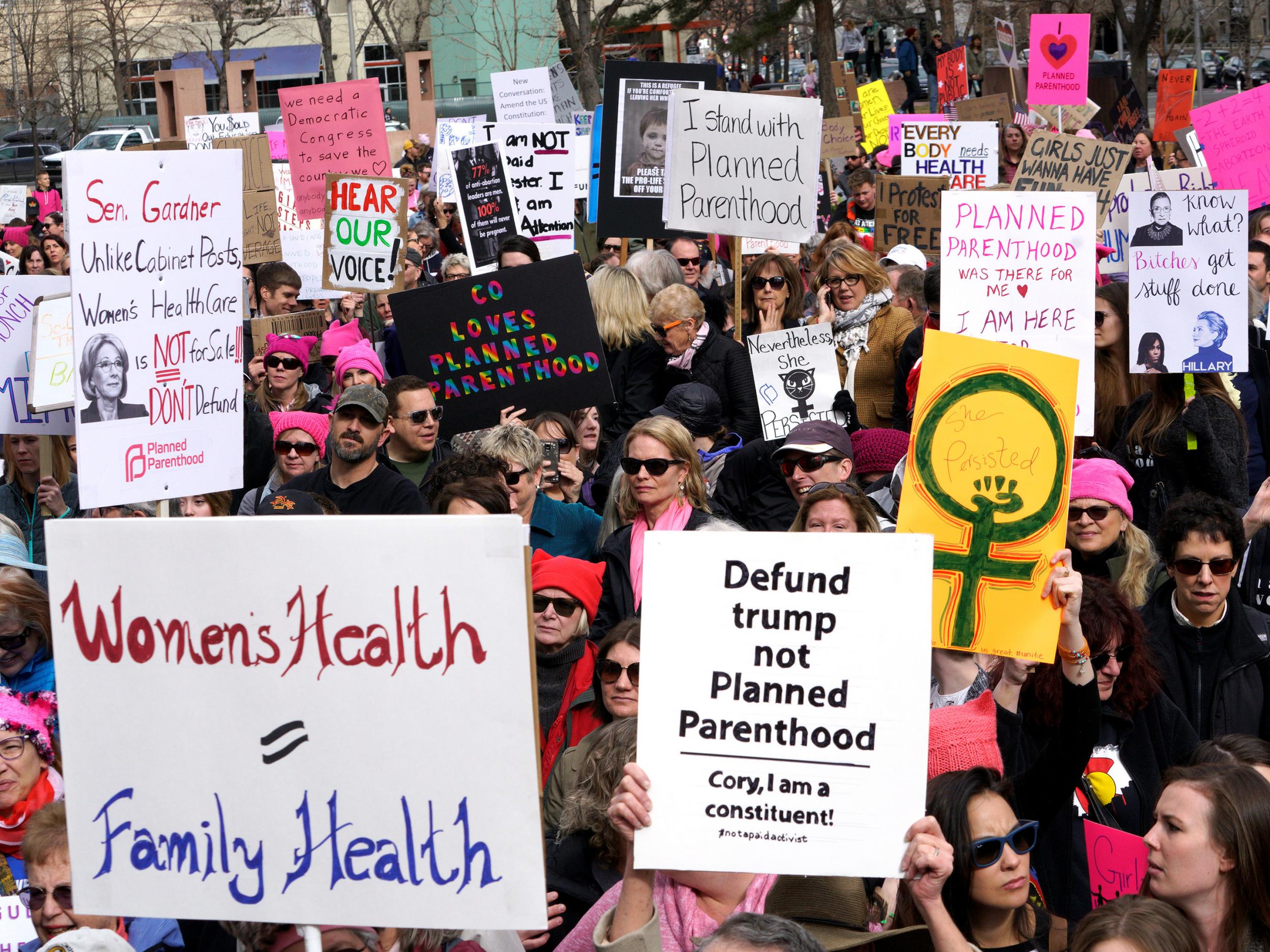Nearly half of the 56 million abortions performed worldwide every year are unsafe, health experts say
Women in poor countries facing even higher risk after Donald Trump's cuts to family planning programmes abroad

Your support helps us to tell the story
From reproductive rights to climate change to Big Tech, The Independent is on the ground when the story is developing. Whether it's investigating the financials of Elon Musk's pro-Trump PAC or producing our latest documentary, 'The A Word', which shines a light on the American women fighting for reproductive rights, we know how important it is to parse out the facts from the messaging.
At such a critical moment in US history, we need reporters on the ground. Your donation allows us to keep sending journalists to speak to both sides of the story.
The Independent is trusted by Americans across the entire political spectrum. And unlike many other quality news outlets, we choose not to lock Americans out of our reporting and analysis with paywalls. We believe quality journalism should be available to everyone, paid for by those who can afford it.
Your support makes all the difference.Nearly half of the estimated 56 million abortions performed worldwide every year are unsafe, health experts say.
Women in poor countries face the highest risks, with the issue set to be worsened by the US Government's cuts to family planning programmes abroad.
Donald Trump signed an executive order in February reinstating a "global gag rule" that blocks aid groups from performing or giving advice about abortions if they receive US funding.
Worldwide, 25 million unsafe abortions occurred every year between 2010 and 2014, according to a report by the World Health Organization (WHO) and the Guttmacher Institute. Some 97 per cent of those are in Africa, Asia and Latin America.
"Nearly half of abortions in the world are unsafe. And that is surprising because safe abortion is a simple intervention, scientifically speaking," said Dr Bela Ganatra of WHO's department of reproductive health and research.
"There is an association between highly restrictive laws and unsafe abortion," she told a news briefing.
All women and girls need access to sex education and effective contraception to avoid unwanted pregnancies and get safe abortion services if desired, Dr Ganatra said.
Uruguay, Nepal and Ethiopia have made safe abortion accessible in recent years, she added. Ireland plans to hold a referendum next May or June on whether it should loosen some of the world's strictest abortion laws, Prime Minister Leo Varadkar said on Tuesday.
Around 88 per cent of abortions occur in developing countries, where contraception is often lacking, said Dr Gilda Sedgh, principal research scientist at the Guttmacher Institute, speaking from New York.
Dr Sedgh, asked about the impact of Mr Trump's executive order, said it bans US health assistance to foreign NGOs if they provide abortion services, counselling or referrals, "even if they use non-US funds for those activities".
"Funding cuts to USAID, which is the channel through which family planning assistance is provided, has also been proposed in the US budget," she said.
"We don't have hard evidence yet of the impact of those policy changes and proposed budget cuts."
But a more limited so-called "gag rule" was imposed by previous Republican administrations, Dr Sedgh said. Studies indicated that in sub-Saharan Africa this had led to an increase in abortions after clinics were forced to close.
"So looking ahead, we can only speculate based on the past, that it's possible that this policy will again compromise women's access to family planning services and put them at greater risk of abortion, including unsafe abortions."
Additional reporting by Reuters
Join our commenting forum
Join thought-provoking conversations, follow other Independent readers and see their replies
Comments